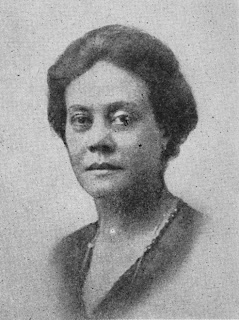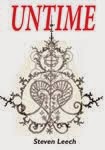
Among the earliest literary figures who lived in Delaware in the early 20th century was Alice Dunbar-Nelson. She was born Alice Moore in New Orleans on July 19, 1875. Her first husband was the American poet Paul Laurence Dunbar who died in 1906, about three years after she moved to Wilmington where she had family. Probably the best and most recent example of her influence on Paul Laurence Dunbar and about their the stormy relationship can be found in Eleanor Alexander’s 2002 book Lyrics of Sunshine and Shadow (New York University Press). Her own literary career did not end there. Her literary work showed up, both before and after her marriage to Dunbar, in places like George Jean Nathan’s and H. L. Mencken’s Smart Set as well as in Crisis when it was edited by W. E. B. DuBois. While in Wilmington she married Robert Nelson and is better known today as Alice Dunbar-Nelson. Later she worked as an educator and social activist as well as publisher of the local African American newspaper, The Wilmington Advocate, during the early 1920s, making her a pioneer of local Black journalism. Her literary and journalistic works inspired many who participated in the Harlem Renaissance during the 1920s.
One of Dunbar-Nelson’s early short stories, “Hope Deferred,” is among her most anthologized. Two anthologies where the story can be found are: Ebony Rising: Short Fiction of the Greater Harlem Renaissance Era, edited by Craig Gable and published in 2004 by the Indiana University Press, and “Girl, Colored” and Other Stories: A Complete Short Fiction Anthology of African-American Women in The Crisis Magazine, 1910-2010, edited by Judith Musser and published in 2011 by McFarland & Company, Incorporated.
“Hope Deferred” was first published in 1914 in Crisis 8, the main publication for the National Association for the Advancement of Colored People (NAACP). The story was most certainly written in Wilmington and gives clues regarding its locale. Early on in the story, Dunbar-Nelson states that the city in the story is, “if not distinctly southern, at least one on the borderland between the North and the South.” Later on in the same story she divulges that the protagonist, Edwards, is serving time at the “county workhouse.” The “Workhouse,” during a little more than the first half of the 20th century in New Castle County, was the name given to the county penal institution then located at the intersection of Greenbank Road and the Newport-Gap Pike (Route 41) near Price’s Corner. The “Workhouse” was also the place from which an uncharged inmate, George White, was kidnapped by local white citizens and lynched nearby in 1903, the year that Alice Dunbar arrived in Wilmington. The “Workhouse” was also the location, where about two weeks before the lynching of George White, several men were publicly whipped and made to stand in the pillory. Delaware finally outlawed the pillory in 1905, but the state did not abolish corporal punishment until the late 1960s. One of the guard towers of the ‘Workhouse” still remains in the Park at Price’s Corner.
Alice Dunbar-Nelson wrote “Hope Deferred,” which is most probably set in Wilmington, at a time when the Dupont Company was about to make an obscene fortune from profits from World War I, when the United States occupied the impoverished country of Haiti, when the Ku Klux Klan in Delaware was at the height of its power and influence and when both major political parties heard racist views. Even though the Progressive Era was in full bloom in places like New York City, and the Modernist Movement was making significant cultural advances, hope seemed to be waning for Wilmington’s African-American community. It was a bleak time in Delaware to be writing for social and cultural progress. In spite of this, Dunbar-Nelson wrote a story that was echoed in a refrain attributed to Langston Hughes when “hope deferred” became transferred into a “dream deferred.”
Alice Dunbar-Nelson only has a small citation in Alain Locke’s monumental tome, The New Negro: Voices of the Harlem Renaissance, published in 1925. Perhaps she might have had a greater part in Locke’s anthology and commentary had she gone to Harlem and played a greater role in that flowering of modern African-American culture. She chose instead to remain in Wilmington, and in her later years in Philadelphia, writing and struggling for social progress. Alice Dunbar-Nelson died on September 18, 1935. She is interred at the Wilmington and Brandywine Cemetery.





